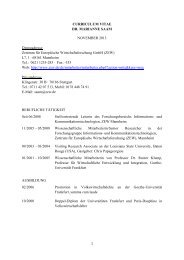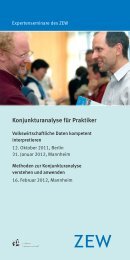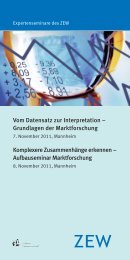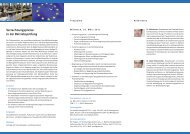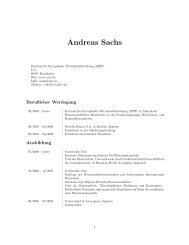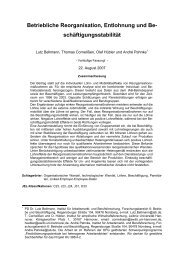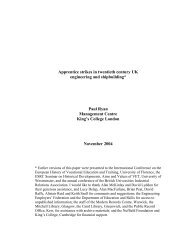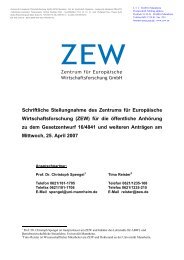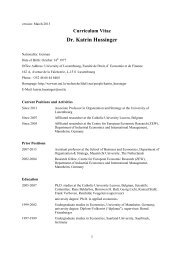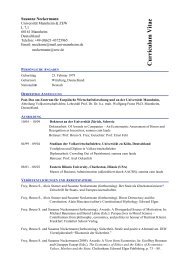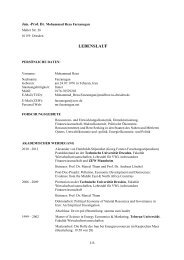Does Alma Mater matter? Evidence from Italy*
Does Alma Mater matter? Evidence from Italy*
Does Alma Mater matter? Evidence from Italy*
Create successful ePaper yourself
Turn your PDF publications into a flip-book with our unique Google optimized e-Paper software.
Introduction<br />
<strong>Does</strong> the attended college affect the earnings and employment prospects<br />
of graduates? This question is particularly important for the households<br />
sending their offspring to college and paying part of the cost, and for the<br />
government, which in a number of countries runs most universities and needs<br />
to know whether and why some institutions may be delivering better outcomes<br />
than others.<br />
Spurred by the interest on the quality of education, a recent literature<br />
has investigated the labour market effects of college quality, mainly but not<br />
exclusively in the US. Black and Smith, 2003, and Brand and Halaby, 2003,<br />
review the key contributions. The main focus in this literature has been so far<br />
on comparing elite versus non – elite colleges, and the degree of selectivity<br />
has been measured either with the average SAT score of the incoming<br />
freshmen – in the US – or with the average A-level score of the intake of<br />
students – in the UK (see Chevalier and Gonlon, 2003). The basic finding of<br />
this literature is that college quality <strong>matter</strong>s for labour market outcomes.<br />
In this paper we investigate in the Italian institutional context the effect<br />
of the attended university on earnings and employment prospects three years<br />
after graduation. Since we cannot measure unambiguously selectivity, we<br />
focus instead on the location of the college, on the public/private divide and on<br />
observable measures of college quality. We find that <strong>Alma</strong> <strong>Mater</strong> <strong>matter</strong>s<br />
significantly for the early labour market performance of Italian graduates. In<br />
particular, graduates <strong>from</strong> universities located in the more developed Northern<br />
part of the country experience three years after graduation significantly higher<br />
employment probabilities but only slightly higher nominal earnings than<br />
graduates <strong>from</strong> Southern universities.<br />
We also find that the mobility of Italian students across universities –<br />
and particularly <strong>from</strong> the under-developed South to the more developed North<br />
- is limited. There is little support, however, to the view that mobility is<br />
hampered by liquidity constraints. Alternative explanations include regional<br />
price differentials, which reduce the earnings gap between the North and the<br />
1




